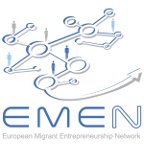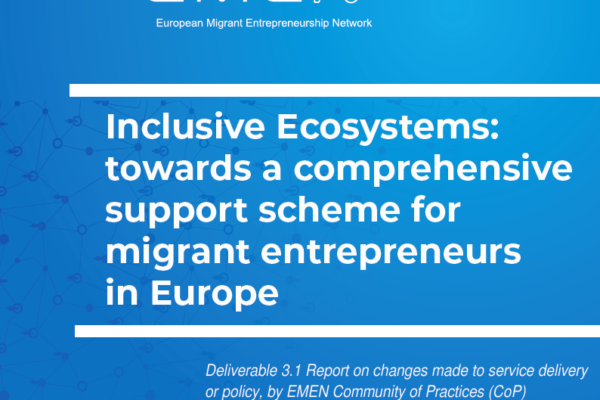Social innovation initiatives, especially those experimenting at local level and scaled up at other levels, are essential to create systemic change and maintain momentum initially generated by the refugee crisis.
Patricia Martinez Sáez, AEIDL (05/12/2017)
Addressing the opening plenary of the Social Innovation for Refugee Inclusion event, organised by the European Economic and Social Committee on November 16th and 17th, Elizabeth Collet, Director of the European Migration Policy Institute, spoke to the audience of 250 participants about the limitations of traditional approaches, when trying to facilitate the social inclusion of large numbers of migrants and asylum seekers.
According to Eric Young (founder of the Social Projects Studio and distinguished visiting professor of Social Innovation at Ryerson
University, Toronto), to ensure that the large amount of resources used to boost social inclusion are making an impact in the long term, and thus maintaining the momentum, we need two key elements: grassroots experimentation, aimed at effectively addressing specific societal challenge; and a collaborative and ‘smart’ network connecting all those initiatives on the ground. The societal challenges we are currently facing are highly complex. Hence, we need to
understand such complexity by developing smart networks which bring together people with very different backgrounds but focused on a common societal goal. In such a process, unusual suspects from all sectors (those who do not identify themselves as social innovators) are critical.
Yara Al Adib presented an innovative project started at local level in Belgium, which has now started to scale up. This social entrepreneur from Syria quit her previous job at Deloitte and started her own business in Antwerp, after fleeing the war and been granted refugee status in Belgium. She explained to the audience that what motivated her to become a social entrepreneur was her own experience, as a young, highly educated woman, with some knowledge of English and Dutch and good connections, trying to deal with the challenging process of integration. If she herself found it difficult, what was it like for those whose skills were not in demand or who did not speak any local language fluently? In that context, she and three other unemployed Syrian refugees she approached started ‘From Syria with Love’, a catering service which started around a year ago at a street food festival. An instant success with the local population, it currently employs five full-time staff and provides different kinds of catering services in several Belgium cities. In order to carry on growing and helping other refugees, they are looking for ‘ambassadors’ around the country to help them expand the business.
Several speakers and participants highlighted the need to create more initiatives that encourage the integration of migrants from the moment they arrive, rather than waiting for their asylum claims to be approved. Early labour market inclusion is vital for successful social integration. Although the rules on work vary from one EU country to another, we need to start from the very beginning to create an environment where work opportunities and innovative ideas can flourish faster. Professor Eric Young highlighted how everything depends on inclusion, not only the future of the refugees but also the future of the EU.
Co-creation was presented by several project leaders as another key element of social Innovation. Mireia Nadal Chiva, from the ReDI School of Digital Integration (a non-profit school for techinterested newcomers applying for asylum in Germany), explained how they have been cocreating high-quality training and tools with volunteers, who bring their professional experience, and group of students offering their digital skills and enthusiasm. Likewise, Luisa Seiler, co-founder of SINGA Germany, affirmed that co-creation and strong multi-level collaboration are crucial to ensure innovative solutions for newcomers. At SINGA, they pilot small local enterprises or social projects which, in the event of success, are brought to the next level. A clear example of how social innovation at local level can impact public policy making at national level is what happens with the project Comme à la maison (CALM), implemented by SINGA France. The project, which aimed to connect newcomers with 15 families willing to offer temporary accommodation, received more than 12,000 subscriptions and after 3 years has managed to link over 400 families with refugees and asylum seekers from several countries. The economic impact of the project has proven so beneficial for the public authorities in terms of ensuring the efficient use of public funds and cost savings for the State that the central government is encouraging its continuation.
Therefore, for societies to become really inclusive we need social innovators at all levels, connected within a ‘smart’ network, allowing not only for the co-creation of new ideas but also creating the conditions for social innovation to emerge and create sustainable change.
More information: http://www.eesc.europa.eu/nl/node/56283



